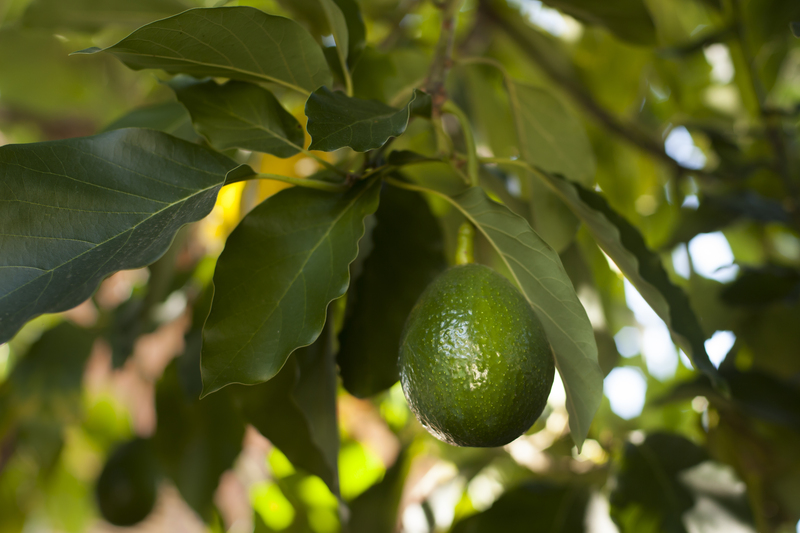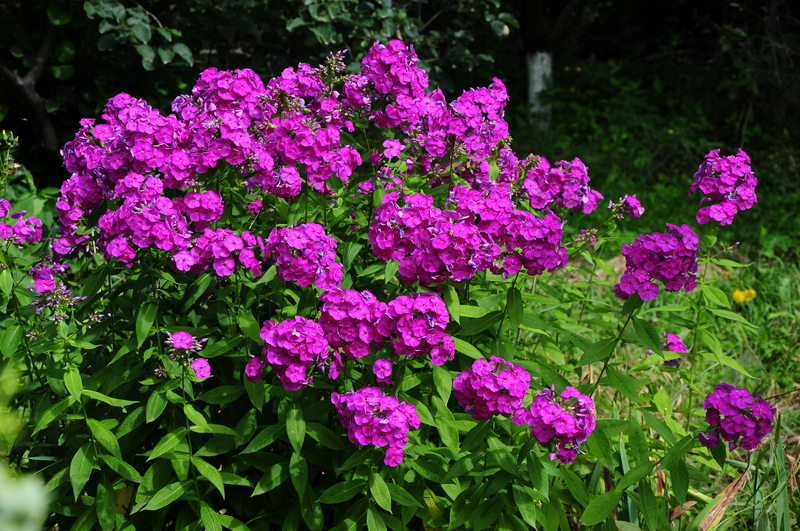Turning Trash into Treasure-rich Soil
Posted on 04/10/2025
Turning Trash into Treasure-rich Soil: The Complete Guide to Transforming Waste into Garden Gold
In the modern world, managing waste is one of our biggest environmental challenges. However, what if you could take your trash, specifically organic waste, and convert it into something invaluable? Turning trash into treasure-rich soil is not just a catchphrase--it's a sustainability practice that's accessible and beneficial for everyone. This comprehensive article explores how you can effortlessly transform household and yard waste into nourishing, fertile soil for your garden or houseplants.

Why Transform Trash into Treasure-rich Soil?
Food scraps, yard clippings, and other organic refuse make up a significant portion of the waste that ends up in landfills. When left to decompose in anaerobic landfill conditions, these materials release methane, a greenhouse gas far more potent than carbon dioxide. Composting offers a solution by harnessing natural processes to break down waste and create rich, healthy soil.
Here are some compelling reasons to turn trash into high-value, nutrient-rich soil:
- Reduces landfill waste and lowers greenhouse gas emissions
- Enriches your garden or lawn with organic matter and nutrients
- Improves soil structure for better root growth and water retention
- Saves money otherwise spent on store-bought fertilizers and soil amendments
- Raises environmental awareness and fosters sustainable habits
The Principles Behind the Process
Compost--the treasure you seek--results from aerobic decomposition. During this process, billions of microbes feast on waste materials, breaking them down and turning them into humus: that rich, dark, crumbly soil enhancer.
Turning waste into garden gold involves achieving the right balance between:
- Greens: Moist, nitrogen-rich materials like food scraps, coffee grounds, and fresh grass clippings.
- Browns: Dry, carbon-rich materials such as dried leaves, straw, cardboard, and shredded newspaper.
Getting Started: What Trash Can Become Treasure?
Not every piece of garbage is destined for compost glory, but you'll be surprised at how much of your daily waste can become valuable soil amendment:
- Kitchen Scraps: Fruit and vegetable peels, coffee grounds (and filters), eggshells, stale bread, teabags (without staples)
- Yard Waste: Grass clippings, leaves, small branches, flowers
- Household Paper: Shredded newspaper, cardboard, paper towels (unused or lightly used)
- Other Compostables: Sawdust from untreated wood, hair/fur, natural fabric scraps
Things to avoid: Dairy, fats, meat, weeds with seeds, diseased plants, glossy paper, pet waste. These can attract pests, create odors, or spread disease.
Methods to Turn Trash into Treasure-rich Soil
There are several ways to turn your organic waste into black gold. Here are some of the most popular methods:
- Backyard Composting: The classic method using a compost bin or open pile in your yard.
- Vermicomposting: Employing worms (usually red wigglers) to break down food scraps.
- Bokashi Composting: An anaerobic process that "pickles" waste using special microorganisms.
- Trench Composting: Burying food scraps directly in your garden beds.
- Tumbler Composting: Using a rotating drum, making aeration and mixing easier.
Backyard Composting: A Step-by-Step Guide
The most common, approachable method for most households is traditional backyard composting:
- Choose a Compost Bin or Pile: Set up a bin or assign a corner of your yard for composting. Commercial bins help with containment and aesthetics.
- Create a Base Layer: Start with coarse brown material--twigs or straw--to aid airflow.
- Add Materials: Alternate layers of green and brown material, maintaining a rough ratio of 2 parts brown to 1 part green.
- Maintain Moisture: Keep the pile damp (like a wrung-out sponge), but not soggy. Water if too dry; add dry materials if too wet.
- Aerate the Pile: Every few weeks, turn the compost to supply oxygen, which speeds decomposition and prevents odors.
- Harvest the Treasure: In 2-6 months (quicker in warm weather), you'll have dark, crumbly, earthy-smelling treasure-rich soil ready to use!
Vermicomposting: Turning Kitchen Waste into Castings
Vermicomposting uses worms to convert food scraps into highly concentrated, nutrient-rich castings. It's ideal for small spaces, apartments, or classrooms. The basic steps:
- Set Up a Worm Bin: Use a ventilated container and bedding (shredded newspaper, coconut coir).
- Add Red Wiggler Worms: Eisenia fetida are preferred for their voracious appetite.
- Feed Your Worms: Bury small amounts of chopped food waste, avoiding citrus, onions, and meat.
- Harvest Castings: Every few months, collect the crumbly, coffee-ground-like castings and use in your garden pots or beds. This is the purest treasure soil from your trash!
Bokashi: Composting All Kinds of Waste
Bokashi composting utilizes a specific mix of anaerobic bacteria to "pickle" kitchen scraps, including dairy, meat, and oily foods not suited for normal compost. The process is odorless and fast:
- Add scraps in a Bokashi bucket with bran containing the special microbes.
- Compress waste to minimize air and sprinkle bran each time.
- After filling, let it ferment for about two weeks, then bury in the garden or add to your outdoor compost bin to complete decomposition and create nutrient-loaded treasure soil.
Optimizing Compost: How to Make Your Treasure Soils Truly Rich
To gain the highest-quality soil from your trash, follow these key techniques:
- Balance Browns and Greens: Too much green creates a smelly, soggy mess. Excess brown slows decomposition. Aim for a moist, fluffy, and sweet-smelling pile.
- Shred Materials: Break down larger pieces--smaller bits decompose faster.
- Monitor Moisture: Regularly check if the compost feels like a wrung-out sponge.
- Aeration: Turning the pile injects vital oxygen, preventing anaerobic odors and accelerating breakdown.
- Avoid Composting Pitfalls: Never add diseased plants, weeds with seeds, meat, or dairy to avoid pests and spoilage.
Compost Accelerators and Natural Boosters
Want to speed things up or improve the nutrient content? Here's how:
- Compost starters or activators: Add a handful of finished compost, aged manure, or "compost starter" mix to inoculate your pile with beneficial microbes.
- Chop and Mix: Chop up harder stems and toss the pile often.
- Minerals: Occasionally add a dusting of rock phosphate, greensand, or crushed eggshells to enhance mineral content in your treasure soil.
How to Use the Finished Compost-Treasure
After a few months, you'll be rewarded with dark, earthy treasure-rich soil that smells sweet and feels crumbly. Here's how to put it to use:
- Topdress garden beds to add organic matter and nutrients
- Mix into potting soil for indoor and outdoor plants
- Mulch shrubs and trees to suppress weeds and conserve moisture
- Amend soil before planting for vegetables, flowers, or lawns
- Brew compost tea for liquid fertilizing of sensitive seedlings
Turning Trash into Treasure-rich Soil in Urban Spaces
Limited on outdoor space? Urban composting solutions make it possible to turn kitchen waste into nutrient treasure, even on a balcony:
- Worm bins: Fit under sinks or in closets.
- Bokashi buckets: Odorless and compact, ideal for apartments.
- Community compost programs: Many cities offer drop-off or curbside collection for compostables.
Environmental and Personal Benefits
When you commit to turning your waste into treasure-rich soil, you're not just recycling, you're regenerating. The impact ripples through the ecosystem:
- Reduces landfill burden dramatically
- Cuts methane emissions and mitigates climate change
- Provides a free, renewable resource for farming and gardening
- Creates resilience in your local food system
- Connects you with the cycles of nature and sustainability practices
Educational and Community Impact
Composting and soil-building with household "trash" is a fantastic way to engage children, schools, and neighborhoods. It fosters environmental literacy, inspires stewardship, and builds community connections that bloom along with the gardens you enrich.

Common Questions About Turning Trash into Treasure Soil
A: With an active compost pile turned regularly, you can have finished compost in as little as 2-3 months. In colder climates or more passive systems, it may take six months to a year.
A: If done correctly (balancing wet and dry materials, good aeration), composting should not smell worse than damp earth. Avoiding meat, dairy, and oily foods will keep rodents and flies away.
A: Yes! Finished, mature compost can be used with virtually any plant. Always allow your compost to finish breaking down--unfinished compost can rob soil of nitrogen and potentially harm seedlings.
A: Try vermicomposting indoors or look for local drop-off programs and community compost hubs.
A: Absolutely. Adding compost improves texture, increases water holding, and introduces beneficial microbes, transforming depleted or clay-heavy soil into fertile, loose growing medium.
Conclusion: From Waste to Wealth, Right in Your Own Backyard
Turning trash into treasure-rich soil isn't just about sustainable waste management; it's about reclaiming value, supporting nature's cycles, and reaping lasting benefits for your garden and beyond. Whether you start with a simple pile in your backyard, a worm bin under your sink, or by joining a neighborhood program, you are part of a global movement transforming refuse into abundance.
The next time you toss a banana peel, coffee grounds, or a handful of autumn leaves, remember: you're not discarding garbage, you're nurturing the foundation of future gardens, healthier ecosystems, and a more sustainable planet.
Start today--let your trash become the richest treasure your soil will ever know!
Latest Posts
Turning Trash into Treasure-rich Soil
Eco-Friendly Gardening Techniques with Dog Safety
Winter Plant Care: Preserving Nature's Beauty in Cold Months

